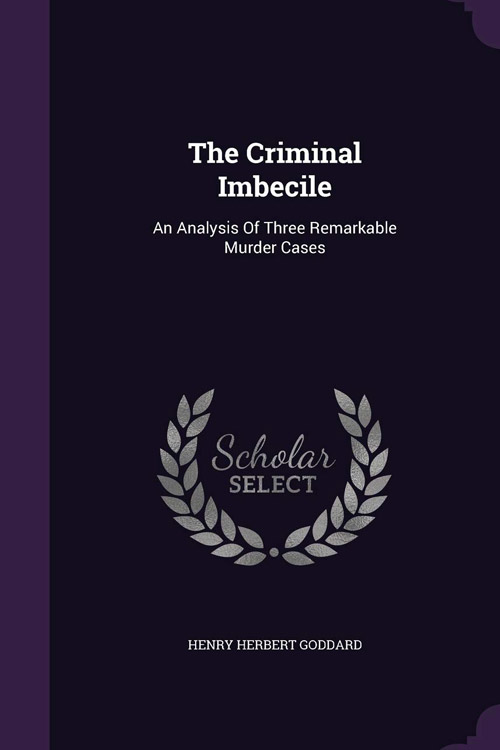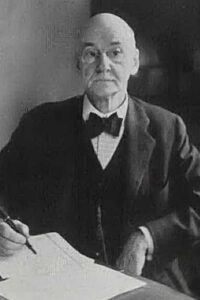
The Criminal Imbecile: An Analysis of Three Remarkable Murder Cases
Not infrequently have verdicts in murder trials been unacceptable to the populace. In that respect, this verdict is not exceptional, but from other standpoints, it is remarkable. Probably no verdict in modern times has marked a significant step forward in society’s treatment of the wrongdoer. For the first time in history, psychological tests of intelligence have been conducted in court, and the mentality of the accused was established based on these facts.
The value of this verdict cannot be overestimated. It creates a new standard in criminal procedure. It recognizes that weakness of mind, as an excuse for crime, is of the same importance as a disease of the mind, puts feeble-mindedness in the same category with insanity, and requires that it, like insanity, be considered in all discussions of responsibility. When we add the now-accepted fact that the feeble-minded are at least as numerous as the insane, we see the far-reaching significance of this standard set by the Supreme Court of Herkimer County, New York.
The verdict has not been acceptable to the people since the character and the limitations of the high-grade imbecile are not understood. Intending to explain this type of defect, which the defendant illustrates so well, we propose in the following pages to go over the history of this case, presenting the facts in light of present-day knowledge of the feeble-minded.
Read or download Book
Henry Herbert Goddard
Henry Herbert Goddard (August 14, 1866 – June 18, 1957) was an American psychologist, eugenicist, and segregationist during the early 20th century.
Biography.
He is known primarily for his 1912 work The Kallikak Family: A Study in the Heredity of Feeble-Mindedness, which he came to regard as flawed for its historical depiction of the titular family and for translating the Binet intelligence test into English in 1908 and distributing an estimated 22,000 copies of the translated test across the United States. He also introduced the term “moron” for clinical use.
He was the leading advocate for intelligence testing in societal institutions, including hospitals, schools, the legal system, and the military. He helped develop the new topic of clinical psychology, in 1911, helped to write the first U.S. law requiring that blind, deaf, and intellectually disabled children be provided special education within public school systems, and in 1914, became the first American psychologist to testify in court that subnormal intelligence should limit the criminal responsibility of defendants.
Goddard was born in Vassalboro, Maine, the fifth and youngest child and only son of farmer Henry Clay Goddard and his wife, Sarah Winslow Goddard, who were devout Quakers. (Two of his sisters died in infancy.) His father was gored by a bull when the younger Goddard was a small child, and he eventually lost his farm and had to work as a farmhand; he died of his lingering injuries when the boy was nine years old. The younger Goddard went to live with his married sister briefly but, in 1877, was enrolled at the Oak Grove Seminary, a boarding school in Vassalboro.






